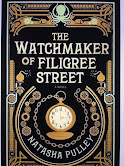Two Disparate Stories That Belong on Your Shelf!
By Theresa Gauthier
The Making of Another Major Motion Picture By Tom Hanks
I knew I’d like this even before I picked it up. I’d read his previous book and loved every word. This was a much longer story. This is a full length novel rather than a collection of stories. He’s stuck with something I’m sure felt familiar to him. As the old adage goes, write what you know, and Hanks has given us an interpretation of the making of a film.
It’s really so much more than that.
The tale begins not in Hollywood, but rather with the inspiration of the tale that will eventually become the motion picture. We trace the idea at the heart of the film from concept through to film and trace all the ups and downs and influences and changes and tweaks from all the people who wether knowingly or unknowingly influenced what the film eventually becomes.
What a concept! What a ride!
The story travels from 1947 to 1970 to present day, and it couldn’t have been as rich and beautiful as story if any of this had been left out. We start with a troubled soldier, his family, and his choices. We follow the family to 1970 where the soldier’s nephew is working on a comic book that has its own following, and then to present day, when this obscure comic, based on a soldier, becomes the basis for the next in a successful film series.
But that’s just it—though I’ve given you an idea of what happens, it’s so much more than the sum of its parts. It’s rich, detailed, and so real it’s like I could have stepped through the pages into this world.
Hanks uses language like it’s a character. Each word chosen to convey more than it can alone just by the way it’s strung together with others. Words that set the tone, that leap from the page, that string together in such a unique order as to make the reader laugh out loud, or sense the differences in perspective each character has by virtue of background, history, beliefs, and family.
Hanks’s style is woven into each page. Some pages made me think of his brilliant film That Thing You Do! Not for any real similarities, but for his use of language. No one else could have written this book.
I only hope he’ll continue writing.
West Heart Kill by Dann McDorman
West Heart Kill starts out as a familiar tale. A large group of wealthy people gather for a holiday weekend at an exclusive lakefront community. All have known each other for a long time, except for a few invited guests.
Soon, someone is dead, and everyone seems to have had a motive.
You can imagine how it goes. The protagonist sets out to solve the murder, does all the things he should do—talking to everyone, finding out about everyone and all their secrets. What you won’t imagine is that this book takes the unwritten rules of the murder mystery and tosses them out the window. Right. Through. The. Glass.
The format of the story shifts near the end and become more like a script, and by this time, you know something weird is happening. The shift in format prepares you for the strangeness of the rest of the book.
To be honest, my first thought was that the writer had gotten lazy. That Dann McDorman just didn’t want to finish the book in a conventional way ands so decided to just get the dialogue and some pertinent facts down to save himself the trouble of fleshing out the rest of the tale. More on this later.
The protagonist’s detective work does uncover secrets, and find the murderer, but by that time, there’s another victim. It seems this second mystery has a different culprit, but if you’re looking for a conventional solution, you won’t find it here.
One of the odder things is that the end of the book does become a sort of script. Rather than bother writing the ending in the prose of the rest of the book, it’s broken down into what could be a transcript of court proceedings or an actual script from a movie or a play.
Why the author chose to finish the story like this I’ve no idea. The truth is my first thought was that the author was too lazy to finish writing it properly and decided to just type out the important bits, but I dismissed this as being an unfair judgement.
The book has generated a lot of conversation. Some people are vehement in shouting it down, in declaring it a cheat. Others find it creative and impressive.
I’m not sure which camp I’d fall into. The truth is, I’ve long thought a lot of what the author describes here about the voyeuristic nature of the act of reading murder mysteries, and being called on it made me laugh out loud and spurred me on to finish the book.
I’d hate so see dozens of books written like this one, but I don’t think that’s likely. It’s the kind of a story that can only be told once. I’m glad I went along for the ride.








Comments
Post a Comment